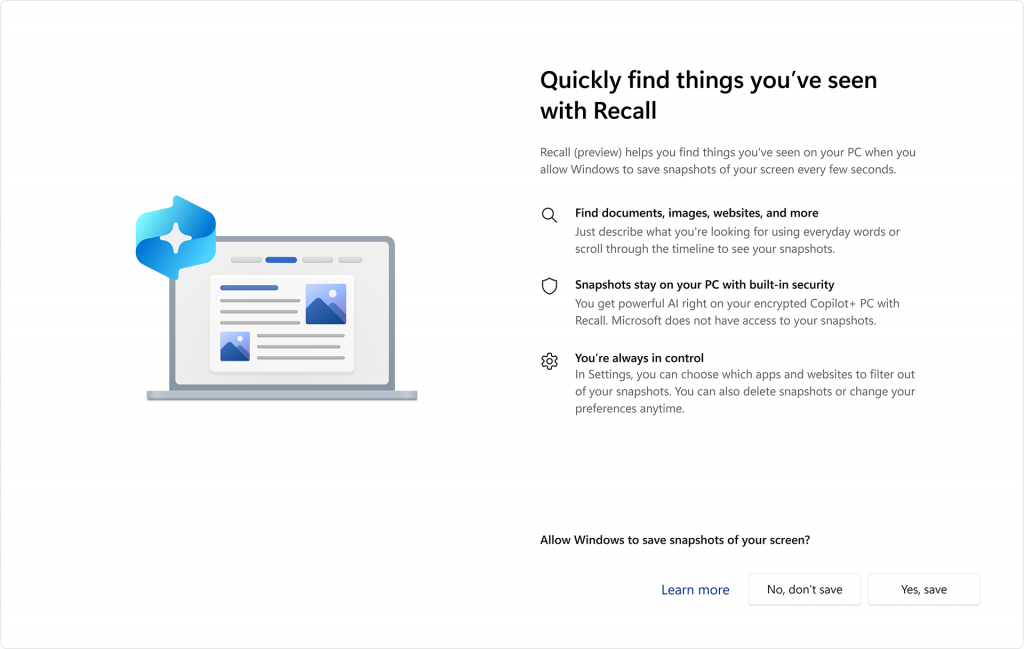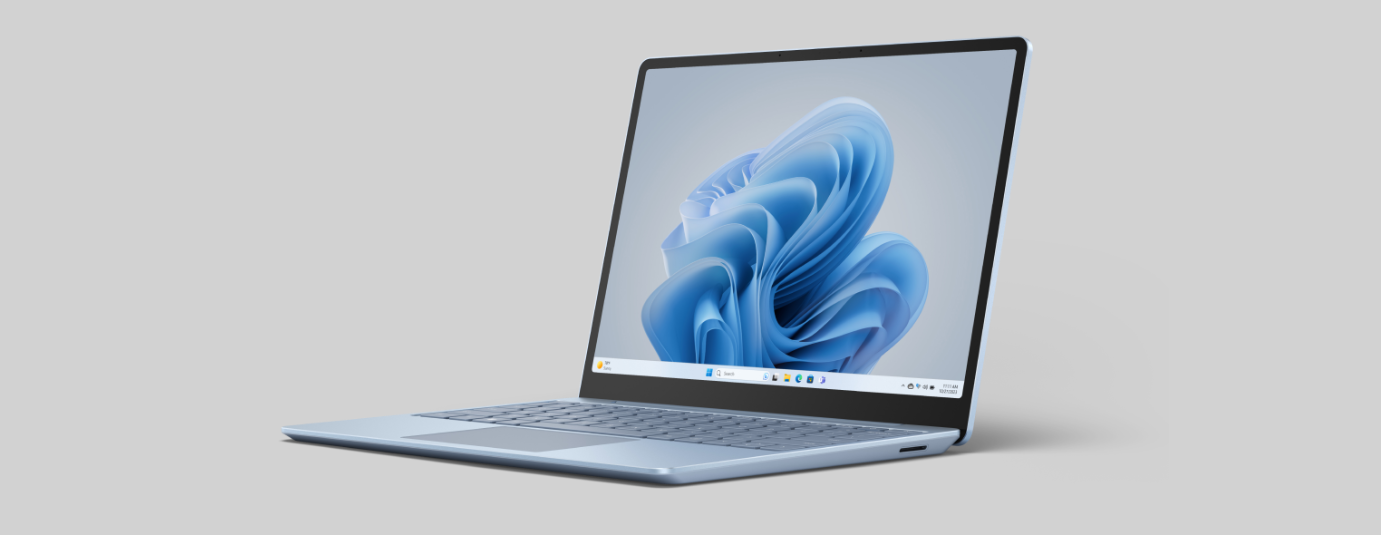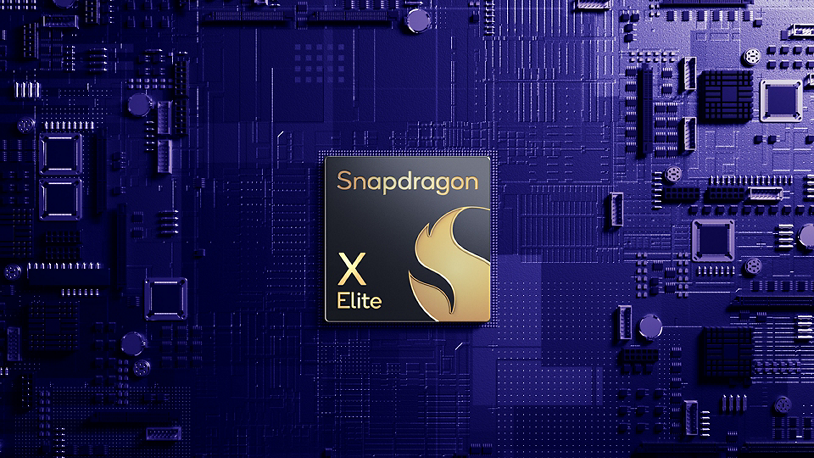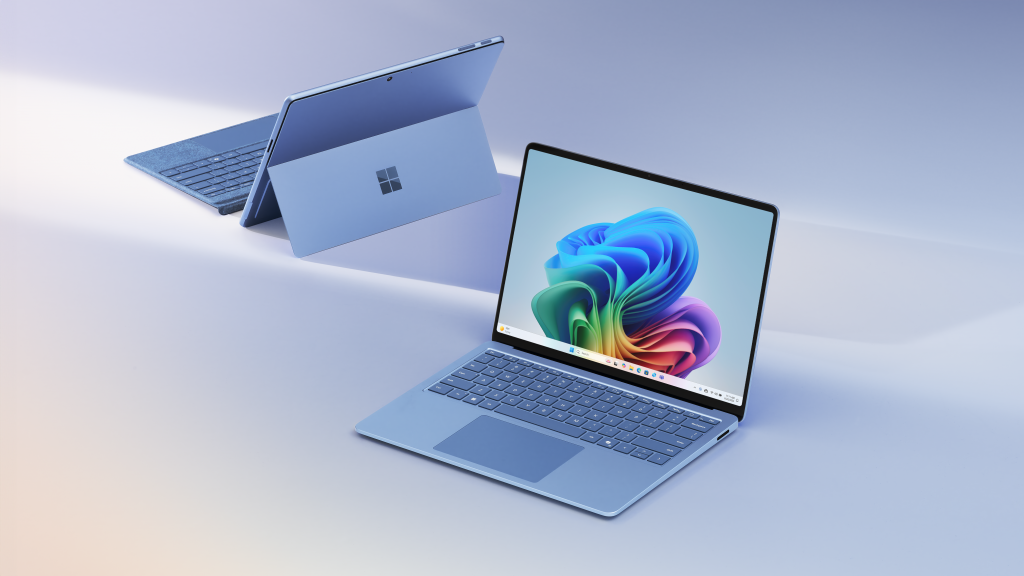- Microsoft’s Copilot+ PCs faced backlash over security vulnerabilities in the “Recall” feature, leading to a shift from default to opt-in option.
- The Copilot+ PC’s AI capabilities did not meet user expectations, lacking significant improvements or unique functionalities.
- Performance and battery life issues with Qualcomm’s Snapdragon X chips, along with a legal dispute over licensing terms, further hindered the launch of Copilot+ PCs.
Microsoft has long been a dominant player in the software market, especially with its Windows operating system and Office suite. Known for innovation in various areas, including cloud computing, productivity software, and enterprise solutions.
Furthermore, introducing Copilot+ PCs reflects Microsoft’s strategy to integrate AI deeply into its products. However, the launch has not led to the expected market disruption, as sentiment has shifted with widespread caution about their two main features: Arm and AI.
Backlash Over “Recall” And Security Concerns
The backlash over Microsoft’s AI feature “Recall” and the subsequent challenges faced by Copilot+ PCs highlights several critical issues for the company, particularly around security, privacy, and product performance.
The “Recall” feature was designed to enhance productivity by remembering and retrieving information across different sessions and applications. Experts found that Recall’s data was poorly secured, making it easy for unauthorized access to sensitive information.

Due to these significant security concerns, Microsoft’s recent announcement disclosed updates for the Recall feature, stating it won’t be available at the June 18 launch.
Changes include enhanced security with “just in time” decryption for Recall snapshots protected by Windows Hello. This ensures data remains encrypted until users authenticate, reinforcing privacy and user confidence in the feature.
However, the security lapses in the Recall feature led to a loss of trust among users and industry experts. Trust is crucial, especially when dealing with AI features that handle personal and potentially sensitive data.
Moreover, users had high expectations for Copilot+ PCs, hoping for groundbreaking AI integrations that would significantly enhance their computing experience. The actual AI features, apart from Recall, did not meet these expectations.
The AI capabilities did not offer significant improvements or unique functionalities compared to existing technologies. This lack of innovation made it difficult for Copilot+ PCs to stand out in a crowded market.
Apple’s announcement of AI features with a strong emphasis on security and privacy further accentuated Microsoft’s shortcomings. Apple’s proactive stance on privacy made Microsoft’s issues more pronounced and damaging.
Licensing Dispute Between Arm And Qualcomm
Arm Holdings, a prominent British semiconductor and software design company, licenses its chip technology to various manufacturers, including Qualcomm.
However, there is a legal dispute between Arm and Qualcomm that revolves around the licensing of chip technology, particularly concerning Qualcomm’s acquisition of Nuvia and its potential impact on Arm’s licensing terms.

Microsoft’s Copilot+ PCs are expected to feature Qualcomm’s new Snapdragon X chips, which are pivotal for their performance and functionality. However, Microsoft’s Copilot+ PCs may face launch delays due to a licensing dispute between Arm and Qualcomm over Nuvia’s technology.
Delays in the availability of Snapdragon X chips could impact Microsoft’s competitiveness in the PC market, where timely hardware releases are crucial. Competitors may take advantage by offering alternatives that meet consumer needs.
Furthermore, uncertainty surrounding the legal dispute may also affect consumer and enterprise confidence in the reliability and availability of Copilot+ PCs.
Performance And Battery Life Issues

Qualcomm’s new Snapdragon X chips were expected to deliver significant performance and battery life enhancements, making Copilot+ PCs more attractive.
Early reviews and user feedback indicated that these improvements were not as substantial as promised. Performance issues and underwhelming battery life further diminished the appeal of Copilot+ PCs.
Verdict
In the initial briefings for Copilot+, I was impressed by Microsoft’s ambitious plan despite the risks of transitioning to Arm and focusing on AI. But at that moment, it felt like they had done it.
However, it was almost expected that there would be problems, especially with a risky feature like Recall. I hope Microsoft and Qualcomm resolve these issues for better laptops.
Thank you! Please share your positive feedback. 🔋
How could we improve this post? Please Help us. 😔
Moiz Banoori, with a decade of experience in gaming and tech journalism and a degree in journalism, is a notable figure in the industry. He has contributed to various esteemed platforms, showcasing his expertise in both reporting and opinion writing.





